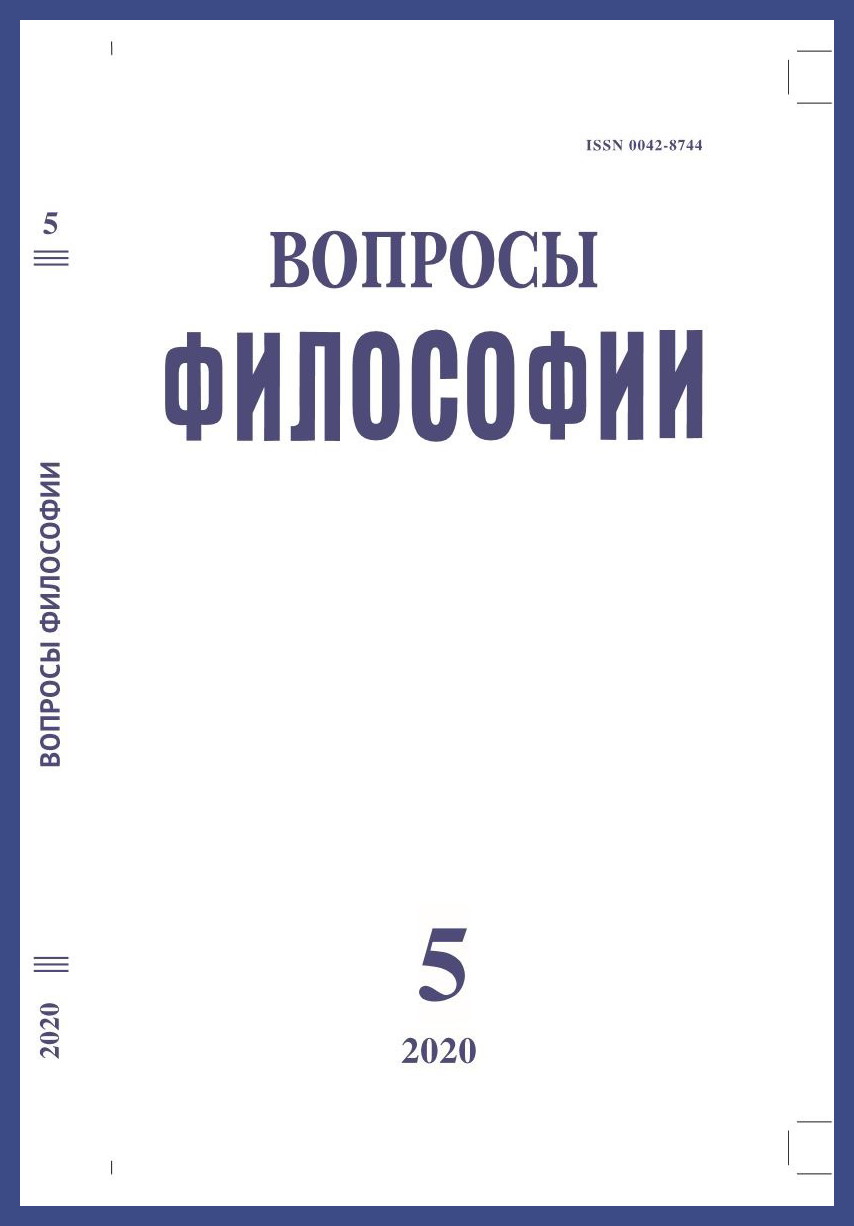Karl Marx’s Concept of Formation of the Integrity of the Man
DOI:
https://doi.org/10.21146/0042-8744-2020-5-36-48Keywords:
praxis, unity of material and ideal activity, integrity of a man, historicity, comprehensively developed personalityAbstract
The article undertakes a reconstruction of one of the fundamental philosophical ideas of Karl Marx, but which still remains little studied. It is about the concept of the formation of the actual integrity (totality) of a person. The author shows that this concept of Karl Marx is substantiated (rooted) in his doctrine of praxis as the species essence of human beings. Since, from the point of view of Marx, everything in human society is either this activity itself, or some of its results,some of its activities, then, taken in the formal aspect, this integrity of a man is determined by the immanent totality of praxis, its internal material-ideal unity, which permeates all levels and structures human being (starting from the anthropological unity of the soul and body, and the immanent unity of the socio-historical universe to the unity of the inner world of man). However, the real, actual integrity of a person is the result of a long concrete historical formation, which unfolds from the original syncretism (in which I am not yet distinguished from the totality of We) through the alienation and rupture of a man (both socially – in the division of labor, class struggle, and in terms of the individual – in breaking and opposing the soul and body, material and spiritual activity) to the true integrity of human existence (a comprehensively harmoniously developed personality).

